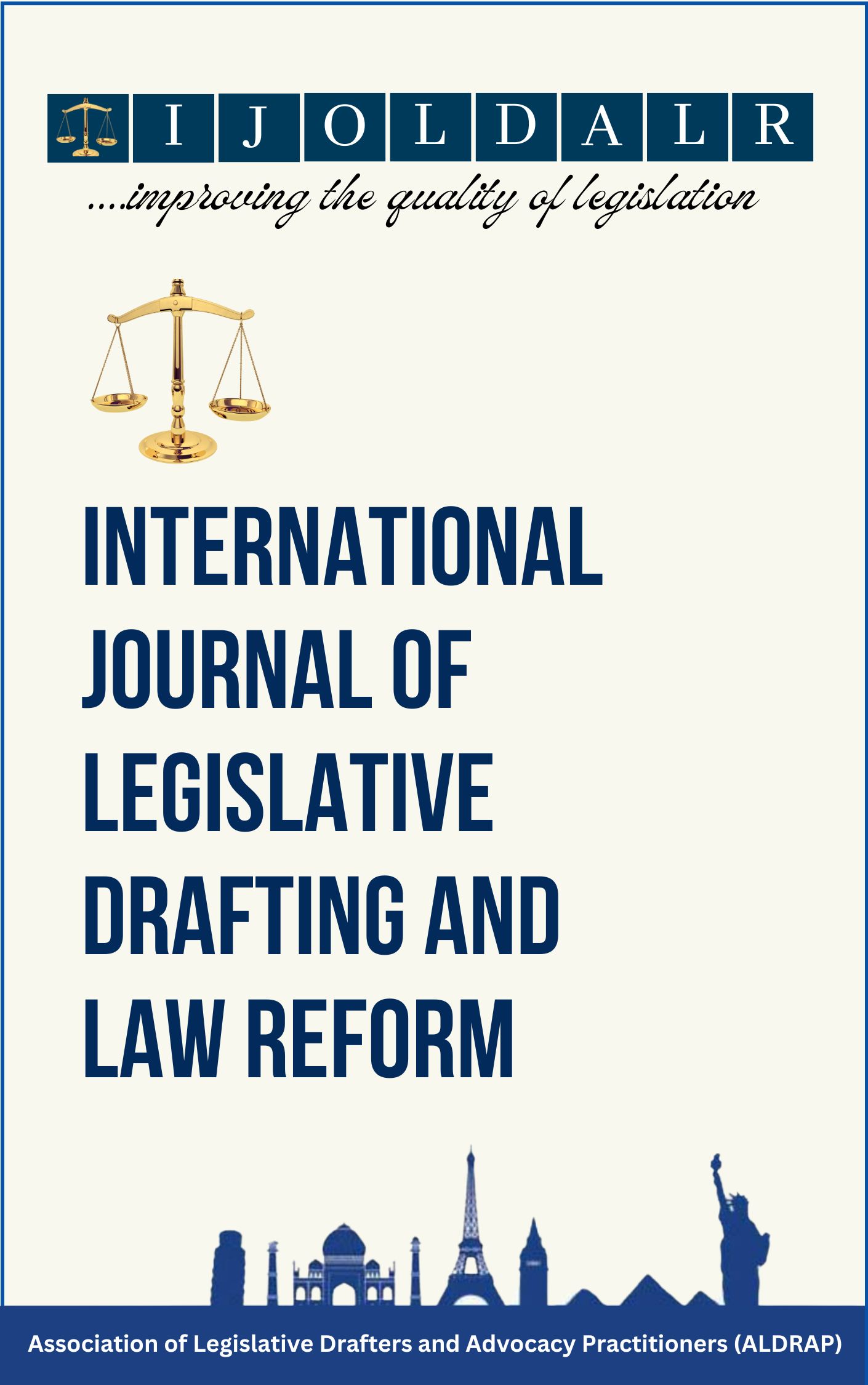Abstract
Plagiarism is a well-known concept. It refers to “the practice of taking someone else’s work or ideas and passing them off as one’s own.” The Black’s Law Dictionary defines it as “the deliberate and knowing presentation of another person’s original ideas or creative expressions as one’s own; the wrongful appropriation of another’s expression of ideas, or of the ideas themselves, by slight variation of expression..” Legislative plagiarism would therefore be the act of presenting in whole or in part either a legislative proposal or a Bill drafted or enacted by another legislature or a sponsoring member of parliament as one’s own. It refers to the failure of acknowledging the source of one’s ideas of a legislative proposal or a Bill, and in extreme cases the deliberate copying of swathes of provisions.
In this paper, I argue that “legislative plagiarism” is an overreach of the academia’s plagiarism concept to a legislative drafting space that unapologetically copies or improvises laws— as long as they suit a country’s circumstances— whose law-making processes are dynamic and flexible and are a melting pot of infusion of ideas and changes that the standard definition of plagiarism wouldn’t apply. This paper is based on Kenya’s legislature.



 National Library of Nigeria
National Library of Nigeria.jpg) Association of Nigerian Authors
Association of Nigerian Authors Nigerian Library Association
Nigerian Library Association EagleScan
EagleScan Crossref
Crossref